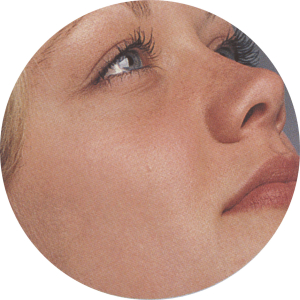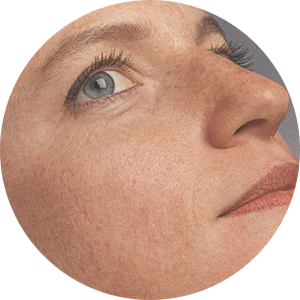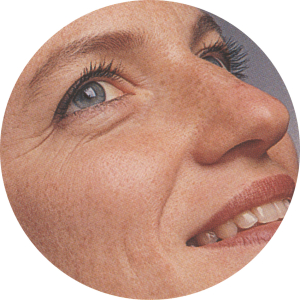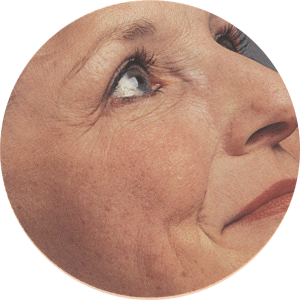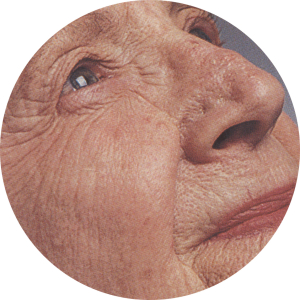Referenced world wide by dermatologists and plastic surgeons, (Photoaging classification) and currently over 38,000 professional and industry web sites. This photodamage classification system was developed by Dr. Richard Glogau and is designed to help you determine your skin type. Neutrogena has chosen to use it in the development of their Healthy Skin and Anti-aging product lines. Remember, there are progressing degrees of photoaging within each skin type, and each person has different needs. Photoaging is the premature aging of the skin due to ultraviolet light exposure. No one is immune from its effects. Beginning in early adulthood, many will suffer the ravaging consequences of excessive exposure to the sun’s rays. Tender facial skin is particularly susceptible to photoaging. Worrisome as it may be, the conditions resulting from photoaging can be controlled and diminished depending on the degree of damage incurred. Damage is primarily visible in the form of discoloration and wrinkles. These symptoms develop at various ages depending on an individual’s skin type and exposure to the sun. This scale is widely used by dermatologists and plastic surgeons to successfully match patients with the appropriate therapy for the specific grade of photoaging that affects the patient.
Notice the lines that develop around the eyes and mouth
when the face is in motion
Type 2: ‘Wrinkles in Motion’
Patient age: 30s to 40s
- Early to moderate photo-aging
- Appearance of lines only when face moves
- Early brown ‘age spots’
- Skin pores more prominent
- Early changes in skin texture
Type 3: ‘Wrinkles at Rest’
Patient age: 50s & older
- Advanced photoaging
- Prominent brown pigmentation
- Visible brown ‘age spots’
- Prominent, small blood vessels
- Wrinkles now present with face at rest

